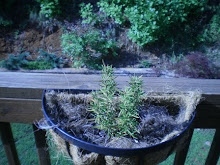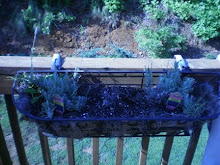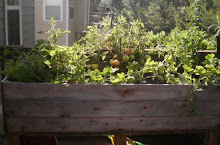I’ve noticed
since we started our Pescatarian
Way
ARUGULA
It contains 2g
of carbs in a 50-gram portion. One cup of arugula contains 1g of carbs. Arugula is rich in phytonutrients, which may
reduce the risk of several kinds of cancers, including breast, stomach, and
colon.
Note: To help
you visualize a 50-gram portion, here are some examples: 10 grapes, 1/3 of a
medium sized peach, 1/2 cup chopped celery, 35 blueberries, or 2 extra-long
spears of asparagus. (Benefits of Arugula)
ASPARAGUS
It contains 2g
of carbs in a 50-gram portion. One-half cup of cooked asparagus contains 3.5g
of carbs.
Asparagus is an
excellent source of anti-inflammatory phytonutrients and a wide variety of
antioxidant nutrients, including vitamin C, beta-carotene, zinc, manganese, and
selenium. It may help reduce the risk of heart disease and regulate blood sugar
because it is rich in fiber and B vitamins, which play a key role in the
metabolism of sugar and starches. (For benefits click here: Benefits of Asparagus) and here is another good
read on Asparagus (ASPARAGUS by WebMD)
It contains 2g
of carbs in a 50-gram portion. One-half cup of sliced green peppers contains 2g
of carbs.
Green peppers
are a great source of vitamins C and A, and vitamin K, which is essential for
bone health. The folic acid found in green peppers can reduce levels of
homocysteine, an amino acid that damages blood vessels and increases the risk
of heart attack and stroke. (Benefits of Green Bell Peppers)
It contains 3g
of carbs in a 50-gram portion. One-half cup of sliced yellow pepper contains 3g
of carbs.
Yellow peppers
are a good source of vitamins C and A, two powerful antioxidants, and vitamin
K. It is rich in folic acid, which helps lower levels of homocysteine in the
body. Homocysteine can contribute to heart disease, stroke, dementia, and
peripheral vascular disease. (Benefits of Yellow Bell Peppers)
It contains 3g
of carbs in a 50-gram portion. One-half cup of sliced red pepper contains 3g of
carbs.
Red bell
peppers are a good source of vitamins C and A, two powerful antioxidants, as
well as vitamin K, which is necessary for bone health. They are also rich in B6
and folic acid, which may reduce the risk of cardiovascular disease (Benefits of Red Bell Peppers)
BEETS
They contain 4g
of carbs in a 50-gram portion. One-half cup of sliced canned beets contain
12.5g of carbs.
Beets get their
color from betacyanin, which may help prevent cancer. They are a good source of
betanine and folate, which reduce homocysteine levels. Homocysteine can damage
blood vessels and contribute to heart disease, stroke, dementia, and peripheral
vascular disease. (Benefits of Beets) (FullCircle-Beet Benefits)
BROCCOLI
It contains 4g
of carbs in a 50-gram portion. One cup of cooked chopped broccoli contains 11g
of carbs.
Broccoli is a
great source of a family of anti-cancer phytochemicals known as
isotheocyanates, which work by neutralizing carcinogens. It is unusually high
in vitamins K and A. The anti-inflammatory properties found in broccoli help to
reduce cardiovascular risks. Broccoli is also good for digestive health due to
its fiber content. (Benefits of Broccoli)

BROCCOLI RABE (What is Rabe?)
It contains 1g
of carbs in a 50-gram portion. One-half cup of cooked broccoli rabe (also called
"rapini") contains 3g of carbs. This immune-boosting vegetable is a
rich source of lutein and zeaxanthin, which may help prevent macular
degeneration. It's also a great source of calcium, potassium, vitamin C, and
bone-building vitamin K. (Benefits of Rabe)
·
This green leafy
vegetable is a great example of a food that can have a huge impact on your
nutrition and overall health. It is packed with potassium, iron and calcium,
dietary fiber and as well as Vitamins A, C and K. Broccoli rabe also
contains lutein, which is an antioxidant that protects the retinas of your eyes
from damage caused by free radicals. Broccoli Rabe is one of the most nutrient
dense foods on the planet. The health benefits are numerous. Slows
aging, Stronger bones, Decreased risk of
hypertension, Lessens inflammation, Cancer Protection, Alzheimer’s protection,
Stroke prevention, Protects against birth defects.
CABBAGE 
It contains 3g
of carbs in a 50-gram portion. One cup cooked shredded cabbage contains 8.5g of
carbs.
Cabbage is rich
in antioxidants, anti-inflammatory nutrients, and glucosinolates, compounds thought to have anti-cancer
activity. Red and purple cabbage contain anthocyanins — antioxidants known as
powerful weapons against cardiovascular disease. (Benefits of Cabbage)
CARROTS
They contain 5g
of carbs in a 50-gram portion. One-half cup of carrots contains 6g of carbs.
Carrots are an
excellent source of antioxidant compounds and the richest vegetable source of
pro-vitamin A carotenes. These help protect against cardiovascular disease and
cancer, and promote good vision. Carrots are rich in carotenoids, antioxidants
that may be beneficial to blood sugar regulation and are inversely associated
with insulin resistance and high blood sugar. (Benefits of Carrots)
CAULIFLOWER
It contains 3g
of carbs in a 50-gram portion. One cup of cooked cauliflower contains 5g of
carbs.
Cauliflower is
a potent cancer fighter. It provides special nutrient support to the body's
detox, antioxidant, and inflammatory systems — all of which are connected to
cancer development. With 6 grams of fiber (and only 50 calories) in 2 cups of
raw cauliflower, it also comes with all the benefits of fiber foods (Benefits of Cauliflower)
CELERY
It contains 2g
of carbs in a 50-gram portion. Two medium stalks of celery contains 2.5g of
carbs.
Celery is an
excellent source of vitamin C. It is also rich with nutrients such as
phthalides, which may lower cholesterol and blood pressure, and coumarins,
which may protect against some forms of cancer by preventing damage from free
radicals. (Benefits of Celery)
CORN
Yes, it does
contain 19g of carbs a 7” ear of corn. Corn is a good source of folate, which
helps to lower levels of homocysteine. It is also rich in beta-cryptoxanthin,
which may lower the risk of developing lung cancer. In addition, corn contains
the B vitamin pantothenic acid, which is necessary for carb, protein, and lipid
metabolism. (Benefits of Corn) (Interesting Corn Myths)
CUCUMBER
It contains 1g
of carbs in a 50-gram portion. One-half cup of sliced cucumber contains 2g of
carbs.
The flesh of a
cucumber is mostly water but also contains vitamin C and caffeic acid, both of
which soothe skin irritations and reduce swelling. The skin is rich in fiber,
magnesium, and potassium — combinations that may help lower blood pressure. (Benefits of Cucumbers)
EGGPLANT
It contains 4.67 g of carbs – 2.8g are
dietary fiber and 1.93g are sugar 0 g of cholesterol -Eggplant is a good source of fiber and manganese. It also contains
fairly high amounts of various types of phytonutrients,
especially nasunin and chlorogenic acid, which may help protect our cells from
damage and lower the risk of heart disease. (Benefits of Eggplant) (Lots More)
They contain 4g
of carbs in a 50-gram portion. One-half cup of cooked green beans contains 5g
of carbs.
Green beans are
a good source of folate, a B vitamin that lowers levels of homocysteine levels,
an amino acid that can increase your risk of heart attack, stroke, and blood
clots. Green beans are also rich in manganese, a trace mineral essential for
growth, reproduction, wound healing, peak brain function, and proper metabolism
of sugars, insulin, and cholesterol. (Benefits of Green Beans)
KALE
It contains 5g
of carbs in a 50-gram portion. One-half cup chopped cooked kale contains 4g of
carbs.
Kale is rich in
antioxidant, anti-inflammatory, and anti-cancer nutrients. It contains powerful
phytochemicals, such as indoles, which have been found to protect against some
forms of cancer. Kale is also loaded with calcium, iron, beta-carotene,
vitamins A, C, and K, as well as lutein and zeaxanthin, which may help prevent
macular degeneration. (Benefits of Kale)
LETTUCE (ICEBERG)
It contains 2g
of carbs in a 50-gram portion. One cup of shredded iceberg lettuce contains 2g
of carbs.
Iceberg lettuce
is an excellent source of potassium, which has been shown to lower blood
pressure, and manganese, which is essential for bone health and may help
regulate blood sugar levels. It is also a good source of iron, calcium,
magnesium, and phosphorus. (Benefits of IceBerg Lettuce)
LETTUCE (ROMAINE)
It contains 2g
of carbs in a 50-gram portion. One cup of shredded romaine lettuce contains
1.5g of carbs.
Romaine lettuce
is an excellent source of vitamin C and beta-carotene, which work together to
prevent the oxidization of cholesterol. It is also rich in potassium, which has
been shown to lower blood pressure. This makes romaine a heart-healthy
vegetable. (Benefits of Romaine Lettuce)
OKRA
It contains 2g
of carbs in a 50-gram portion. One-half cup of cooked sliced okra contains 3.5g
of carbs.
Okra contains
glutathione, which is necessary for immune system support. It is also high in
protein and fiber — one cup provides 4 grams of fiber. (Benefits of Okra)
ONIONS
They contain 7g
of carbs in a 50-gram portion. One-half cup of cooked onion contains 11g of
carbs.
Onions provide
many anti-inflammatory benefits and may be protective against some forms of
cancer. They are rich in sulfur compounds, which are responsible for many of
their health benefits. These compounds can help lower cholesterol and
triglyceride levels, which make onions heart-healthy vegetables.
RADISHES
They contain 2g
of carbs in a 50-gram portion. One-half cup of sliced raw radishes contains 2g
of carbs.
Radishes are an
excellent source of vitamin C and calcium. Like other cruciferous veggies, they
are thought to have cancer fighting properties, and have been used as medicinal
food for liver disorders. (Benefits of Radishes)
SPINACH
It contains 4g
of carbs in a 50-gram portion. One-half cup of cooked spinach contains 3.5g of
carbs.
Spinach is one
of the best sources of vitamin K, which helps build strong bones. It contains
more than a dozen flavonoid compounds that function as anti-inflammatory and
anti-cancer agents. It is a good source of antioxidants that reduce problems
related to oxidative stress, such as high blood pressure. Spinach also contains
lutein and zeaxanthin, which protect against eye disease.
SUGAR SNAP PEAS
They contain 5g
of carbs in a 50-gram portion. One-half cup of whole raw sugar snap peas
contains 1g of carbs.
Snap peas are
rich in antioxidants, such as vitamin C, vitamin E, and zinc, and
anti-inflammatory nutrients, such as omega-3 fatty acids. This combination of
antioxidants and anti-inflammatory compounds may reduce the risk of
inflammatory diseases, including diabetes. (Benefits of Sugar Snap Peas) (Other good info)
TURNIPS
They contain 2g
of carbs in a 50-gram portion. One-half cup of cooked turnips contains 4g of
carbs.
Turnips are
especially high in cancer-fighting glucosinolates. Turnip greens are rich in
antioxidants, including vitamins C and E, beta-carotene, and manganese. They
are also a good source of vitamin K and omega-3 fatty acids, both of which have
anti-inflammatory properties (Benefits of Turnips)
WHITE MUSHROOMS
They contain 2g
of carbs in a 50-gram portion. One-half cup of raw sliced white mushrooms
contains 2g of carbs.
Mushrooms are
extremely dense with nutrients, including selenium, a trace mineral that may
help fight cancer. They are also rich in antioxidant and anti-inflammatory
nutrients, and may help prevent cardiovascular disease.
As I went about my research, I came across a few sites and bloggs trying to deter people from eating vegetables grown underground - Please note, if you grow your own vegetables and clean them properly and are aware of what is in your soil.....there is nothing you should be concerned about. The fact is, if we look around, whether you are eating it, drinking it, washing in it or breathing it in......... ultimately something out there will be your undoing - we are human and from the moment we were born, we were designed to die. It is up to us to use Common Sense, Wisdom and Good Judgement in all that we do, and yes in all that we consume.
Do your research before jumping to conclusions .......... most of the time there are simple solutions others have overlooked.
Here is a really neat site if you want to be in control of your calorie intake: MYFITNESSPAL

























No comments:
Post a Comment